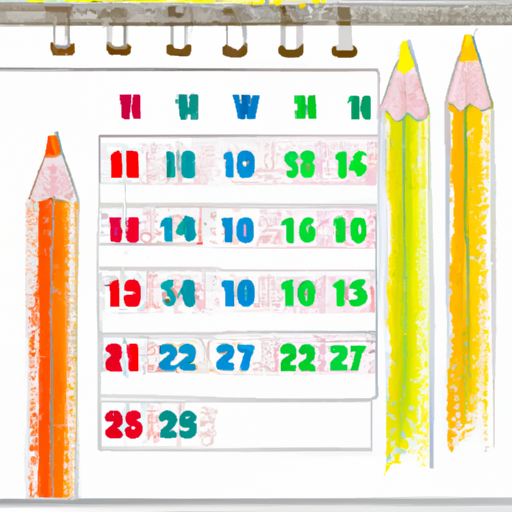Understanding Your Loans
Paying off student loans can be a daunting task. Not only do you have to pay back what you borrowed, but you also have to understand the details of your loans. Understanding your loans is the first step to creating a smart strategy for paying them off.
Before you decide how to pay back your loans, you should first understand the details of each loan. Make sure you know the interest rate, loan term, and total balance due. Knowing the details of your loans will help you prioritize which loans to pay off first. If you have multiple loans, focus on the one with the highest interest rate first. This will help you save money in the long run.
You should also consider the various repayment options available to you. Some loans may offer graduated repayment plans or extended repayment periods. These options may help you lower your monthly payments, but make sure to read the fine print and understand the potential consequences of extending your repayment period.
You should also consider consolidating your loans if you have multiple loans with different repayment terms. Consolidation can help simplify your repayment process by combining multiple loans into one. Consolidation can also help you save money by reducing interest rates or providing a longer repayment period.
Finally, you should consider enrolling in an income-driven repayment plan. These plans are designed to make it easier to manage your student loan payments by basing your monthly payments on your income. This can help reduce your monthly payments, but make sure you understand the details of the plan, as there may be tax implications.
By understanding the details of your loans and exploring the various repayment options available, you can create a smart strategy for paying off your student loans. Don’t be afraid to seek help if you need it. There are many resources available to help you understand your loans and create a plan for repayment. With the right plan in place, you can successfully pay off your student loans and achieve your financial goals.

Creating a Repayment Plan
Paying off student loan debt can be a daunting task. But with a little bit of planning and perseverance, you can take charge of your debt and get on the path to financial freedom. Creating a repayment plan is the first step to paying off your student loan debt.
The first step in creating a repayment plan is to calculate your total loan balance. This includes all loans, including federal and private, and their interest rates. After determining your total loan balance, you can then evaluate your monthly budget to see what you can afford to pay toward your student loan debt each month.
It’s important to create a repayment plan that works with your budget. This way, you can make sure that you can make your monthly payments on time and avoid late fees. Additionally, you can consider pursuing alternative repayment plans, such as income-driven repayment plans, which can lower your monthly payments and make it easier to manage your debt.
When creating a repayment plan, you should also consider the different payment methods available to you. This includes making payments online, through an automatic debit, or by mail. You should also consider the different options available for making additional payments. For example, you can make extra payments on the principal balance or use a lump sum to pay off your student loans faster.
As part of your repayment plan, you can also consider refinancing your student loans. Refinancing can help you secure a lower interest rate, as well as a longer repayment term, which can make it easier to manage your student loan debt.
Finally, you can also consider consolidating your student loans. Consolidating your loans can help you simplify your repayment plan and make it easier to manage your student loan debt.
By taking the time to create a repayment plan, you can take control of your student loan debt and work toward achieving financial freedom. Having a repayment plan in place can help you stay on track and make sure that you’re making progress towards paying off your student loan debt.

Refinancing for Lower Rates
Paying off student loans is a daunting task, but it’s one that you can overcome with the right strategies. One of the smartest strategies you can use to pay off your student loans is to refinance for lower rates. Refinancing your student loans can potentially save you thousands of dollars in the long run by reducing your interest rates and monthly payments.
Refinancing your student loans can be done through private lenders or the federal government. By working with a private lender, you can access competitive refinancing rates and terms that may be more favorable than those offered by the federal government. When you refinance your student loans, you’ll be able to take advantage of a lower interest rate and potentially save money in the long run. The lower interest rate could also mean a lower monthly payment, so you’ll be able to pay off your student loans more quickly.
Before you refinance your student loans, it’s important to do your research and understand the terms and rates that different lenders offer. Make sure you compare the terms and rates of different lenders and make sure you are getting the best deal. You should also make sure that the lender you choose is reputable, as some lenders can take advantage of borrowers who don’t understand the loan process.
Once you’ve done your research and found the right lender, it’s time to apply for the loan. The application process can vary depending on the lender and the type of loan you’re applying for. Generally, you’ll need to provide information about your financial situation and income. You may also be asked to provide proof of identity and other documents.
Once you’ve completed the application process and your loan has been approved, you’ll be able to start repaying your student loans with the new, lower interest rate. This can help you save money in the long run, as you’ll be able to pay off your student loans more quickly.
Refinancing your student loans can be a great way to reduce your interest rate and save money in the long run. However, it’s important to do your research and make sure that you are getting the best deal. With the right strategies and a little bit of effort, you can pay off your student loans and start building a brighter financial future.

Prioritizing High-Interest Loans
Paying off student loans can be an intimidating and overwhelming experience. Many students are not sure where to begin and can easily become discouraged by the sheer size of their loan balance. However, with a little bit of willpower and creative thinking, it is possible to make significant progress in paying off student loans. One of the best strategies for quickly paying off student loans is to prioritize high-interest loans first.
High-interest loans have the greatest potential for growing quickly, which can leave you with a large outstanding balance that is difficult to pay off. By prioritizing your high-interest loans first, you can take advantage of the savings on interest payments over time. Even if you are only able to make minimum payments on your other loans, you can make a significant dent in your debt by making extra payments on your high-interest loans.
There are several tips you can use to make progress on high-interest loans. First, you should assess your budget to determine how much you can afford to pay in extra monthly payments on your high-interest loans. Make sure to take into account other expenses such as rent, utilities, and food. Once you determine the amount that you can allocate towards your high-interest loans, you can begin making extra payments on the loan with the highest interest rate.
You can also consider refinancing your high-interest loans. Refinancing your student loans can often result in a lower interest rate and lower monthly payments. This can make it easier to pay off your loans more quickly. Additionally, you can consider consolidating your loans into a single loan with a single monthly payment. This can simplify the process of making payments and can make it easier to manage multiple loans.
Finally, you can take advantage of additional methods to pay off your loans more quickly. For example, you can use tax refunds, bonuses, or other windfalls to pay off your loans. Additionally, you can use a side hustle to generate extra income that can be devoted to quickly paying off your high-interest loans.
These strategies can help you to make progress in paying off your student loans. Prioritizing high-interest loans first can be a smart and effective way to quickly reduce your loan balance. With a little bit of effort and creativity, you can make a significant dent in your student loan debt and take control of your finances.

Making Biweekly Payments
Paying off student loans can feel like an overwhelming task, but there are a number of strategies that can make it easier. Making biweekly payments is a smart and simple way to start tackling your loan debt. Biweekly payments are simply regular payments that you make every two weeks instead of the typical monthly payments. This method can be a great way to pay off your student loans faster, while also freeing up some extra cash in the process.
The biggest benefit to biweekly payments is that they spread out the repayment period so that you’re not making a huge lump sum payment every month. It’s also easier to keep track of your payments since you’re making them more frequently. This can reduce the chances of missing payments and being charged late fees.
If you’re looking for a more creative way to make biweekly payments, you could try a “debt snowball” approach. This involves paying off the loan with the smallest balance first, then rolling the payments you were making for that loan into the loan with the next smallest balance. This method can help you stay focused and motivated as you work your way towards paying off your student loans.
You can also use a “debt avalanche” method to make biweekly payments. This involves tackling the loan with the highest interest rate first, and then rolling the payments into the next highest interest rate loan. This can help you save money in the long run by reducing the amount of interest you pay overall.
Finally, consider setting up an automatic payment plan to make biweekly payments. This can help you stay on track and avoid any confusion or missed payments. You can also set up an automatic transfer of funds from your checking account to your loan servicer so that the payment is made on time each month.
Making biweekly payments can help you pay off your student loans faster and save you money in the long run. With some creative approaches and a little extra discipline, you can make a huge impact on your loan debt and improve your financial situation.

Applying for Loan Forgiveness Programs
The student loan debt crisis is one of the major financial issues facing young adults today, so it’s important to explore all the options for paying off your loans. One of the smartest strategies for paying off student loans is to apply for loan forgiveness programs. This is a great way to reduce or even eliminate the total amount you owe and get out from under the burden of debt.
Loan forgiveness programs are typically offered by the federal government, but there may be other organizations that provide a similar service. These programs are designed to help those who are struggling financially and unable to make their student loan payments. In most cases, you must meet certain eligibility criteria to qualify for loan forgiveness. For example, you may need to be a low-income earner, a member of a certain profession, or have served in the military.
When you apply for loan forgiveness, you need to make sure that you understand the requirements and the application process. You should also keep in mind that the amount of debt forgiveness you receive may vary based on your individual circumstances. Additionally, some loan forgiveness programs may require you to make payments for a period of time before you can receive your full loan forgiveness.
It’s important to research the different loan forgiveness programs available and decide which one best meets your needs. You can also seek the advice of a financial advisor or loan counselor who can help you understand the details of the loan forgiveness program you’re applying for. Additionally, you should make sure to keep detailed records of all your loan payments and any documents related to the forgiveness program.
Another important factor to consider when applying for loan forgiveness is the impact it will have on your credit score. While loan forgiveness isn’t typically reported to credit bureaus, it is possible that the loan will still show up as a negative item on your credit report. As such, it’s important to understand how applying for loan forgiveness might affect your credit score.
Overall, applying for loan forgiveness can be a great way to reduce or eliminate your student loan debt. However, it’s important to make sure you understand the requirements and the application process before you apply. You should also research the different loan forgiveness programs available and talk to a financial advisor or loan counselor if needed. With the right information and guidance, you can make an informed decision and take advantage of an opportunity to reduce your student loan debt.

Keeping a Budget
Paying off student loans can be a daunting task. However, with a little bit of planning and budgeting, it can be done. Keeping a budget is one of the most effective ways to pay off student loans. Budgeting is a great way to track spending and make sure that you are putting enough money towards your student loan payments each month.
When creating a budget, it is important to make sure that you are accounting for all of your expenses. This includes rent, utilities, food, transportation, and any other expenses that you may have. Once all of your expenses are accounted for, it is time to set a budget for your student loan payments. This budget should include a fixed amount that you can comfortably afford to pay each month.
The next step is to find ways to save money. There may be some expenses that can be reduced or eliminated. For example, if you are eating out more than you should, try to cut back and make more meals at home. Additionally, you can look into ways to reduce your utility bills, such as switching to a different provider or consolidating your bills.
Once you have set a budget and found ways to save money, it is important to stick to it. Create a schedule for when you will make your student loan payments and make sure to follow it. This will help you stay on top of your payments and make sure that you are paying off your student loans as quickly as possible.
It is also important to track your progress. Keeping an eye on your student loan balance will help you stay motivated and make sure that you are staying on track. Additionally, it will help you stay aware of how much you have paid off and how much longer you have to go.
Finally, if you are still having trouble making your student loan payments, consider talking to your lenders about refinancing or consolidating your loans. This could help you lower your interest rate or reduce your payment amount.
Overall, keeping a budget is one of the best strategies for paying off student loans. It allows you to track your expenses and make sure that you are putting enough money towards your student loan payments. Additionally, it helps you stay motivated and find ways to save money. By following these tips and staying dedicated to your budget, you can successfully pay off your student loans in no time.

Exploring Tax Benefits
Paying off student loans can be a daunting task, but there are ways to make it more manageable. One of the most effective strategies is to explore the tax benefits available to student loan borrowers. Tax benefits can help reduce the total amount of student loan debt, making it easier to pay off.
For starters, borrowers can take advantage of the Student Loan Interest Deduction. This deduction allows borrowers to deduct up to $2,500 of the interest they’ve paid on their student loans. This can result in significant savings, especially for borrowers who are paying a large amount of interest.
Additionally, borrowers may be eligible for the Student Loan Repayment Program. This program is offered by the government and provides loan forgiveness for borrowers who meet certain criteria. For example, if you’ve worked for a certain amount of time and made a certain amount of payments, you may be eligible for loan forgiveness. This can help reduce the total amount of student loan debt and make it easier to pay off.
Finally, borrowers should also look into the Pay As You Earn (PAYE) and Revised Pay As You Earn (REPAYE) repayment plans. These plans can help reduce monthly payments and extend repayment terms. This can make paying off student loans more manageable and help borrowers avoid defaulting on their loans.
Exploring tax benefits can be a great way to help reduce the total amount of student loan debt and make it easier to pay off. With the right strategy in place, borrowers can take control of their student loan debt and make progress towards paying it off. It’s important to do research and find out which tax benefits are available to you. Doing so can give you the extra boost you need to get out of debt and start building a brighter financial future.

Exploring Other Options
It can be overwhelming to face the reality of student loan debt after graduating from college. It is important to know that you have options when it comes to paying off your student loans. Exploring other options for paying off your student loans can be a great way to help get you out of debt faster and save money in the long run.
One option to consider is loan consolidation. This involves combining all of your student loans into one loan with one monthly payment. This can help lower your interest rate and make your payments more manageable. It is important to note that consolidation may not be the best option for everyone. You should look into the pros and cons of loan consolidation before making a decision.
Another option is to look into refinancing your student loans. This is another way to potentially lower your interest rate and help you save money in the long run. Refinancing your student loans can also help make your payments more manageable. It is important to note that refinancing can come with some risks, so it is important to research the pros and cons before making a decision.
You may also be able to reduce your student loan payments through an income-driven repayment plan. This type of plan adjusts your payments based on your income and family size. This type of plan can lower your payments and make them more manageable. However, it can also extend the length of your loan, which means you may end up paying more in interest over the life of your loan.
In addition to these options, there are other strategies you can explore to help you pay off your student loans faster. For example, you could try to make extra payments on your loan, which can help you get out of debt faster and save money in the long run. You could also try to find ways to increase your income, such as taking on a side job or freelancing. These strategies can help you free up more money to put towards your student loan payments.
When it comes to paying off student loans, it is important to explore all of your options and find the one that works best for you. Loan consolidation, refinancing, and income-driven repayment plans are all great options to consider. You can also explore other strategies to help you pay off your student loans faster, such as making extra payments or increasing your income. No matter what option you choose, it is important to remember that there are options available and that you can get out of debt faster with the right strategy.


